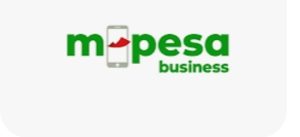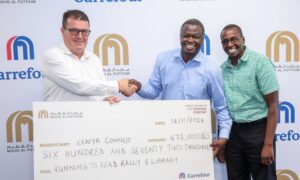How to Start Soap Making Business In Kenya

Soap making/manufacturing is a lucrative business. Soap is the fastest-moving and the most widely used commodity in the world and particularly Kenya. Cooking oil, salt, and onions follow in that order.
This probably explains why most laundry soaps are made by oil refinery companies. The business goes hand in hand with the cooking oil refinery since the oils we use in cooking are the same oils used in making this product-with difference being the grade of the oils used for either product.
Kenyan oil refinery companies usually import these oils because they have the financial muzzle to do so. It is, however, a reprieve to note that the same oils are locally produced and readily available to both small- and large-scale manufacturers and at relatively cheaper prices.
Palm oil is widely available in Mombasa-imported from Mbeya, Tanzania, while Coconut oil is abundantly pressed by many companies at Malindi, Kilifi, and Changamwe.
Over my years in business consultancy, I have noticed one thing with almost all the people who ask for my advice concerning soap business ventures: uncertainty and fear of starting.
Over 95% of them ask this question: Can I really succeed in this (soap-making) business in such a “competitive” market? The other question that I get from these clients is this: “Does this business need/require big capital and space”?
What I immediately conclude from these questions is fear of competition (among them) from the big players like Pwani Life, Menengai Oil Refineries, Bidco, Unilever, and Kappa Oil Refineries.
The above-mentioned companies are five among seven prominent players in soap making business in Kenya. They own leading laundry soap brands like Ushindi, Kuku, Panga, Menengai, White Star, White Wash, Sunlight, Key, etc.
It is quite interesting to learn that only nine (9) laundry soap brands dominate the Kenyan Market of over 52 million people. Assuming that every Kenyan bathes once at any time of the day, and does home laundry at least twice weekly, then you don’t need to be a great mathematician to guess the enormous amount of cash that Kenyans spend on only the 9 brands.

This begs a valid question: Do these few 9 companies satisfy this great population with this commodity?
The answer is yes, and no. Yes, they do satisfy the demand-and this is what propels them into prominence because the big local population spends billions of shillings on this valued commodity.
No, because only a sizeable number of this great population of consumers buy their brands. Then whose other brands do the other members of the population use?
Now, the hard truth is this: The players in this soap industry are so over-stretched that they will not disclose it. This fact is proven by the soaring prices of bar soap and the occasional lack of the commodity in many local shops.
The prices for soap are on an upward trend because these few companies that produce them have no serious competitors thus making them appear to monopolize the trade.
For example, the lowest-priced 800 grams bar of soap costs Ksh.190 in retail Supermarkets, while the most expensive bar costs Ksh.270 at convenient stores – never mind the quality here.
In my research, I have established that the cost of production for one bar of 800g is Ksh.50 (by the big refining companies, while for small-to-medium firms (numbering about six in Kenya), the cost of production for a similar item is Ksh.60 to Ksh.80.
These small-to-medium companies are usually family-owned and supply the local population (they never go beyond the county level because their production capacity is too little to meet the huge local market demand).
They usually source their raw materials (mainly Oils) from retail outlets, and local factories situated at the coastal towns of Mombasa. This retail buying is what pushes their Cost of Production that “high”.
Now, you have started noticing that making an 800g soap with ksh.80 and selling the same at Ksh.200 is a good business deal, haven’t you?
In other words, put it this way: Produce an 800g soap bar at a cost of Ksh.80 (packaging and market included) and give it at a wholesale price of Ksh.190. Isn’t this a worthy venture?
Then why isn’t everyone in this business? You might ask.
People and particularly Kenyans have a poor reading culture. This leaves them with little or no room for research and knowledge, especially in a society where such business is shrouded by the mystery of conspiracy, secrecy, and silence.
This leaves them in darkness when it comes to matters of business enlightenment.
Secondly, many would-be manufacturers have a culture of fear or “the big boy syndrome”. What they do not understand is that these big companies also at one time started small. They started when there were other “big boys” in the game.
To them, courage, vision, and ‘risk-taking’ only propelled them to where their “seniors” are.
Subsequently, big oil refinery companies stave off competition from emerging small players by denying them access to soap-making oils. Sometimes they sell crude (Acid Oil) at exorbitant prices in a bid to discourage them from manufacturing soaps.
Many of you can recall the once gigantic East African Industries – now Unilever, an even bigger giant. They once owned the world re-known Kimbo brand (now the property of BIDCO).
The recent entrants such as Kappa and Pwani Life – considering where they are now – are a testimony enough that you can also be the next entrant.
This is how I have been mentoring new Soap and detergent business entrepreneurs. The level of starting does not matter. Even with as little as Ksh.13,000, you can make it in the soap business.
Ten village Kiosks in your locality are enough to propel you into unparalleled greatness.
Even with as many as 1,000 soap manufacturers, they will never satisfy a population of 52 million people. You can join the existing few players and cut yourself a sizeable share of the market.
By
Timothy Angwenyi
Business Consultant
Justine Nyachieo
Business Man & Mentor








